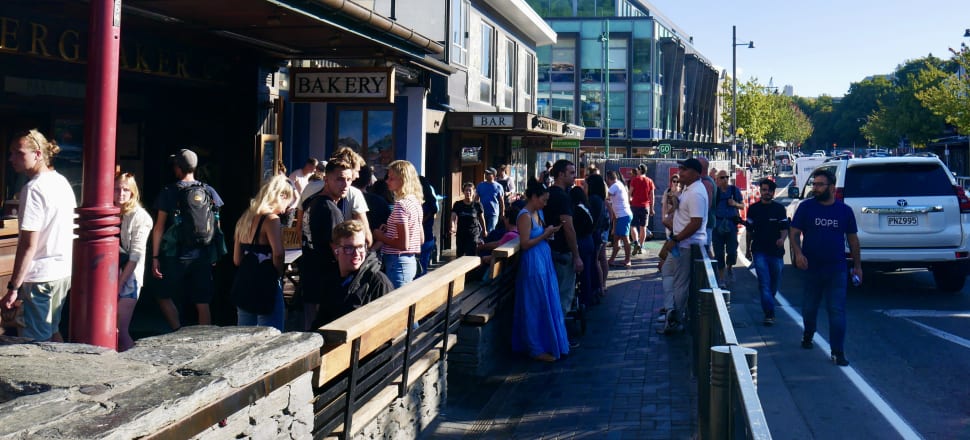
The rush back to pre-Covid activity is putting immense strain on the housing and rental markets in Queenstown, reports Matthew Scott in the first part of a series on inclusionary housing policies
Palatial McMansions stand empty while service workers live out of tents and caravans.
New Zealand’s premier alpine resort town has always been a place of contradictions.
It’s a heartland for that particularly Southern kind of rugged and rural specimen of Kiwi, where people live outdoors in the bracing air, with a tableau of undeniable mountains always at least in their peripheral vision.
At the same time it’s become the preferred bolthole for the well-to-do and a playground for tourists and Kiwis with the appetite and wallet for a bit of alpine opulence.
As Queenstown reopened the gates for the tourists, those contradictions have hit a fever pitch.
READ MORE: * Home ownership is dead, long live progressive home ownership * Queenstown leads the way in affordable housing
The demands of post-Covid tourism, climbing costs of living and a vanishing rental market have all hit the town at the same time.
Rising house prices have locked many working in the service industry out of the market, and a dearth of rentals sees people competing to be considered as flatmates.
Kris and Karla Lodge moved to the area in 2010 from Dunedin, looking for a good place to raise their family.
As a butcher and a hairdresser, they were able to afford to live close to town while paying significant but reasonable rents.
“When we first came up, I found a place in Fernhill where we paid $420 a week,” Kris said. “I remember thinking that’s a little expensive but it’s nothing like it is now."
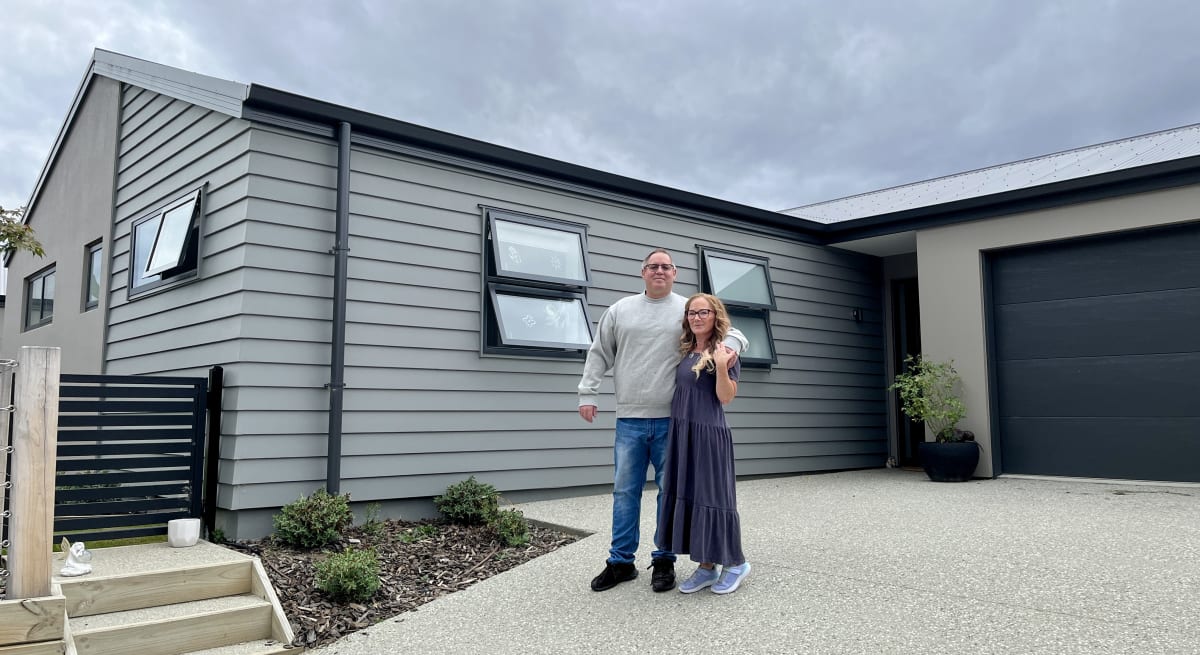
Over the past decade, the Lodges watched rents climb year after year and the prospect of buying into the market still seemed far out of reach.
Median house prices in the Queenstown-Lakes District reached just over $1.3m by June of last year – a good $300k more than the national median.
It’s a consequence of a huge amount of money being passed around in the country’s beating heart of tourism – something that only looks likely to increase if Queenstown continues to attract the most well-heeled of clientele.
But to keep the tourism machine running takes thousands of service industry workers – be they butchers, hairdressers, or the myriad of other jobs that allow the gears of civilisation to be oiled and turned.
Just under two percent of New Zealanders are employed in accommodation or food services – in Queenstown, it's 13.4 percent.
And empty houses (27 percent of properties sit empty, according to the 2018 census) and property speculation seem to have had a weighty effect on the workers who call Queenstown home.
“I know friends that are now paying $1000 a week for rent,” said Kris Lodge.
And for each of those renters, there’s a sword hanging above their heads – a letter can show up in their mailbox at any time announcing a rent increase or plans to sell the property.
Karla Lodge said that’s what happened at the family’s last rental.
"The reason we had to move out was because they were selling it,” she said. “And then they sold it, and nobody moved in."
"Nobody moved in for a long time," Kris added. "At one stage both of our previous two rentals were empty – two four-bedroom houses. There's an accommodation crisis but ... well, it’s crazy.”
The Lodges have managed to escape the chaos of the rental market, now living in a four-bedroom home in Lake Hayes Estate with views up to the Remarkables.
But it was only through inclusionary housing policies adopted by the Queenstown-Lakes District Council and development led by community housing providers that they were able to get into the home.
Inclusionary housing
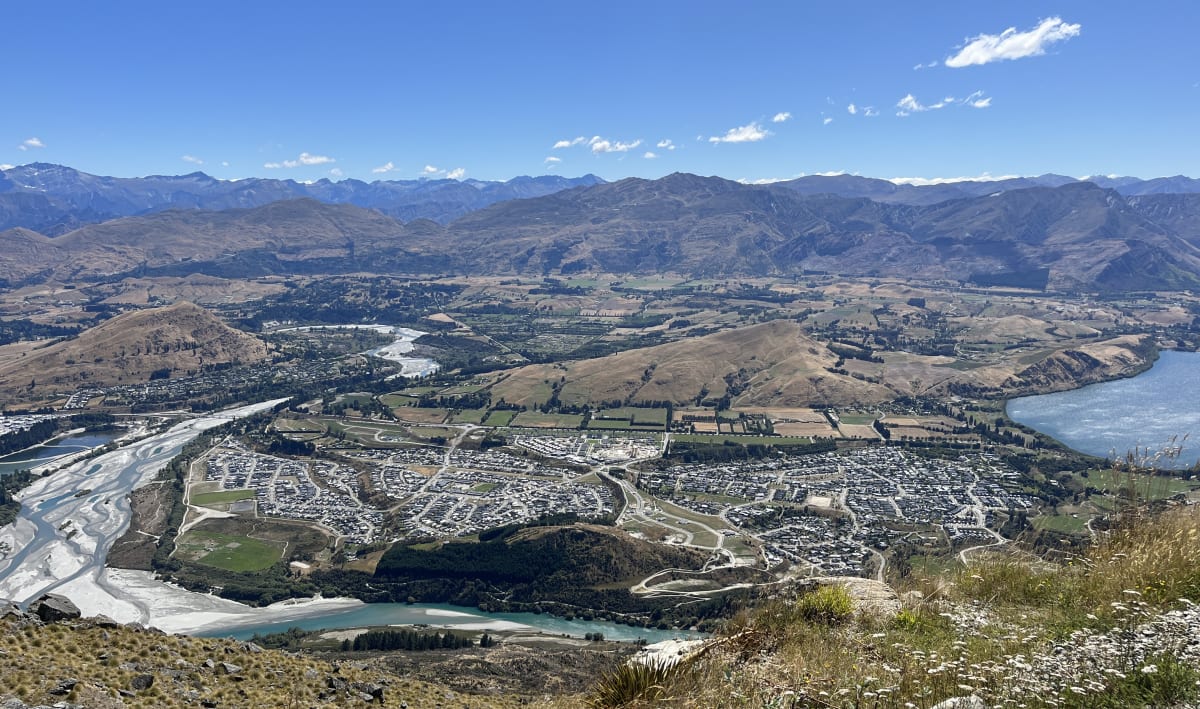
Queenstown Lakes Community Housing Trust was formed in 2007, following recognition by the local district council that a lack of affordable housing was becoming a very real problem for the area.
Consultation found that while there was a steady stream of people moving to the lakes, a good amount of them moved away after a year or so. Many of them gave high living costs as a reason – the largest of these being the cost of putting a roof above one’s head.
The district council began to put together inclusionary housing rules which dictate residential developments and subdivisions must pay an affordable housing contribution.
It's a rule that’s come in stage by stage, with set rules still being floated for the new district plan.
But those contributions have allowed Queenstown Lakes Community Housing Trust – a member of the nationwide peak body Community Housing Aotearoa – to establish a range of programmes that allow people to get into homes.
The Lodges spent a decade on the waiting list, but they were finally able to get a home with the trust’s shared equity programme. This means the trust owns the land and provide it to the Lodges on an affordable 100-year lease, while the Lodges only had to round up the cash for the house itself.
That more than halves the up-front cash they had to cough up on the near-million dollar property.
Trust CEO Julie Scott said a close relationship with council has allowed the trust to get 244 households into homes, many of those on rent-to-own programmes, but demand is high – 870 households are on the waiting list – 80 percent in Queenstown and about 20 percent in Wānaka.
About a hundred homes are under construction.
“We have a goal of one thousand homes by 2038, so that’s what we’re working towards,” Scott said. “It’s not a silver bullet – I don’t think there is one silver bullet for any aspect of the housing crisis, but there’s a whole heap of different levers that you can pull, and inclusionary housing is one of them.”
Those are numbers in stark contrast to the 11 Kāinga Ora houses found in the district.
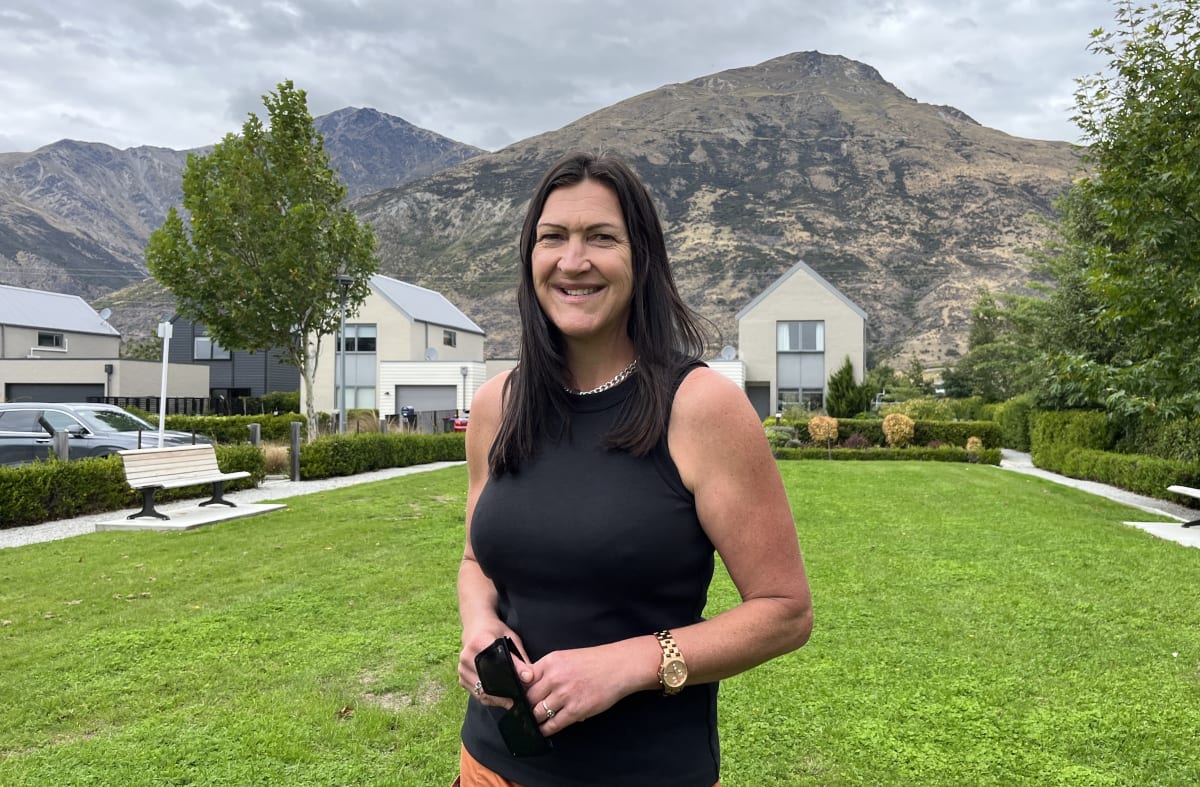
The trust’s focus isn’t just on people really struggling – but also the middle class prospective home owners who are struggling to get their fingers around that bottom rung of the property ladder.
It’s a rung that’s grown more and more slippery over the years.
The $400m progressive home ownership fund that came out of the KiwiBuild reset has helped the trust to keep offering its leasehold and rent-to-buy programmes, although as it nears the end of a three-year pilot programme there is a small amount of uncertainty about this.
“We’re lobbying hard to keep that going,” Scott said.
She said there had been quite a change in how people viewed community housing in the area, with Nimbyism more likely to rear its ugly head in the early 2000s.
Nowadays, plenty of people know somebody who is living in community housing and the problems of the housing shortage are obvious enough to Queenstown residents that it's a game that is much better understood.
But she said that while getting people into their own homes was a net positive for the district, making sure people had access to rentals was more urgent.
“Buying a house isn’t a human right, but access to a decent, warm, dry home is,” she said. “So if you take that out of the equation for a moment … right now for this district, the crisis is around rentals.”
Renting in paradise
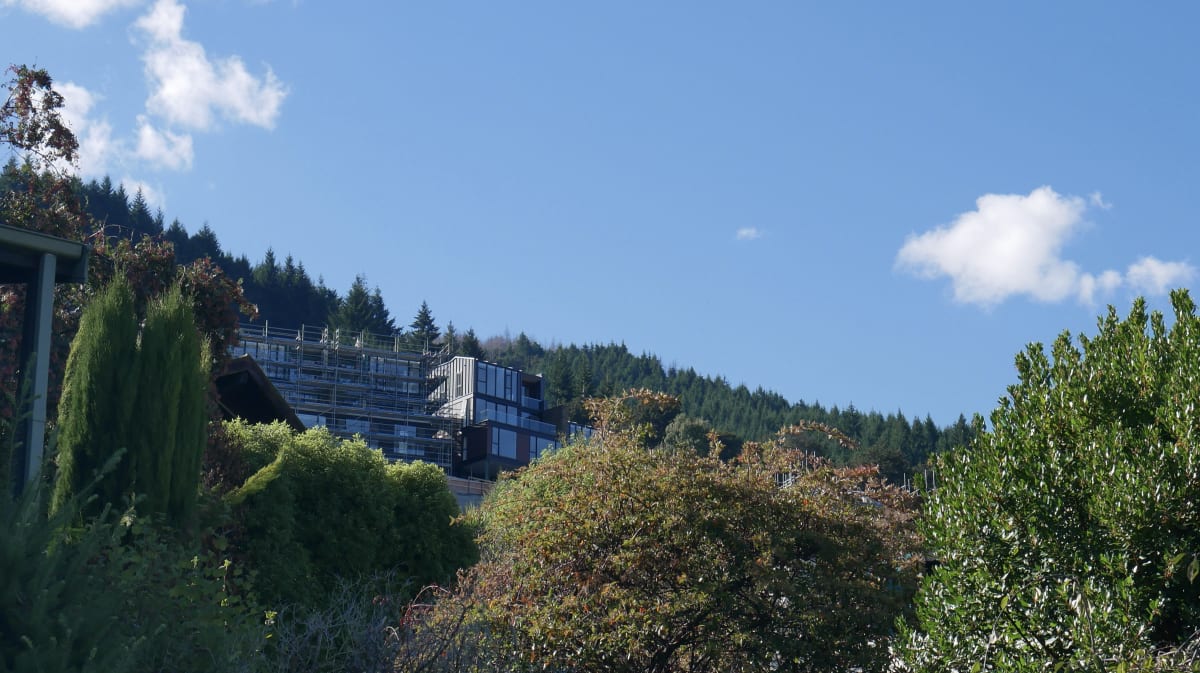
Landing a room in a rented house in Queenstown right now is no mean feat.
The borders are open again and the night air carries a medley of different accents.
Young people have come to work in bars while they wait for snow to fall on the ski fields.
Families have come to settle here while filling key roles such as those in IT, engineering or construction.
But without adequate accommodation, those workers are finding it tough to stick around, and the result is a sea of ‘Help Wanted’ flyers across town.
Every one of those would-be workers has to find somewhere to lay their head at night, and with almost a third of the district’s homes standing empty, it’s become an uphill battle.
All one needs to do is scroll through a few of the area’s Facebook groups where people advertise for flatmates.
People are forced to sell themselves like they’re at a job interview or on a first date.
“I am a long term local aka unicorn… joining the hunt that many are on just now…” wrote one poster.
“We’ve had a lot of interest so have quite a few viewings set up so won’t be taking anymore expressions of interest,” wrote somebody with an empty room less than two days after putting up an advertisement.
Independent economist Benje Patterson joked that it could be a good idea to show up to flat viewings with a case of Pinot and try to grease those wheels.
As a Queenstown-Lakes local, he’s had a close eye on the economic changes the area’s been through during the past few years, and said a “perfect storm” of factors had caused the housing shortage.
“The borders opened and demand came back absolutely ferociously,” he said. “We were this perpetual mirage that no one could get to and suddenly they could.”
That demand called for a scaling up of tourism operations that in turned required more workers.
“But at the same time people are slightly more reluctant to be landlords given the changes to regulations – not trying to pin the blame on that completely but there is a reluctance at the margin,” he said.
Rentals were going off the market seemingly every day.
Another factor that could have contributed is the allure of short-term rental moneymakers such as Airbnb.
The Otago Daily Times reported that an Environment Court consent order issued last month has made it easier for property owners to convert their homes to Airbnbs without going through the resource consent process.
Whatever the cause, about a hundred rentals went off the market in the year from November 2021, along with a 49 percent decline in rental listings for the area on Trade Me.
“That's 500 workers that can't be housed any more,” Patterson said. “And then in December alone we lost more than 30 rentals.”
So it’s not just affordability, but availability as well.
"We've got people who can't find a house and they have 70k incomes,” Patterson said. “Anyone who's been trying to find a flatmate say they are being absolutely swamped.”
So what can be done about that?
Patterson presented his data to the Queenstown Chamber of Commerce earlier this week, where he said just a one percent reduction in the amount of homes sitting empty in the region would have a big impact – about 200 additional rentals providing 600 to 1000 beds for workers.
Queenstown-Lakes of future past

You don’t have to go very far in Queenstown to hear stories of people put out by the housing and rental shortage.
There’s the early morning occupied cars and tents at spots such as Frankton Beach and 12 Mile Delta. Social media is full of stories of people sleeping in their cars and dealing with overcrowded homes.
People share rooms and businesses furnish shuttles to bring people in from far out of town.
It used to be that workers could move to Cromwell for more affordable accommodation, but now even Central Otago’s fruit capital is a pricey place to pay rent.
Now those same workers are being pushed out to places like Alexandra, almost 100km from their workplaces.
And perhaps the fate of Queenstown is a crystal ball we can hold up to see what’s in store for the rest of New Zealand as the gulf between the haves and the have-nots continues to widen.
Community Housing Aotearoa CEO Paul Gilberd said Queenstown can be seen as a “tight case study” as an extreme example of the pitfalls of New Zealand’s approach to property, but also a view of a potential future.
“Queenstown is unique in that you don’t have many other places in the world where you have billionaires building bunkers in the mountains to escape to when the apocalypse arrives,” he said.
“But it is to a large degree built on a service economy. – you observe the lower-income, lower-wage backbone of the community and their inability to live anywhere near where they work.”
He said the work Scott’s housing trust had done had been a huge success.
“Inclusionary housing is a great example of local place-based innovation. It is working. Let’s do more of this more often and let's do it in other places too,” he said.
Gilberd said global and local evidence shows affordability is not being delivered by the open market.
“If you want affordable housing for key workers, you have to do something different,” he said. “To developers we say get used to it and move on.”
For the Lodges, they can finally settle down without being moved on, with a commute that's under 15 minutes.
They said getting into their own home was a tremendous release of stress.
“It's like a weight off your mind,” Karla Lodge said. “When you're renting you’re always wondering when are they going to sell this house or when are they going to put the rent up again?"
"And you’re so scared to get in contact with the landlord if something goes wrong on your property because you might get a letter of rent rise,” Kris said. “So you try to fix everything yourself. Really it was both excitement and relief for us that the kids don't have to worry about moving any more… and we can all relax a bit.”







